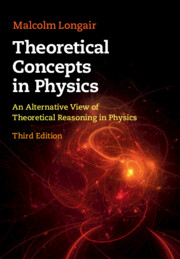Book contents
- Frontmatter
- Dedication
- Contents
- Preface and Acknowledgements
- 1 Introduction
- Case Study I The Origins of Newton’s Laws of Motion and of Gravity
- Case Study II Maxwell’s Equations
- Case Study III Mechanics and Dynamics: Linear and Non-linear
- 8 Approaches to Mechanics and Dynamics
- 9 The Motion of Fluids
- 10 Dimensional Analysis, Chaos and Self-Organised Criticality
- Case Study IV Thermodynamics and Statistical Physics
- Case Study V The Origins of the Concepts of Quantisation and Quanta
- Case Study VI Special and General Relativity
- Case Study VII Cosmology and Physics
- Author Index
- Subject Index
8 - Approaches to Mechanics and Dynamics
from Case Study III - Mechanics and Dynamics: Linear and Non-linear
Published online by Cambridge University Press: 27 March 2020
- Frontmatter
- Dedication
- Contents
- Preface and Acknowledgements
- 1 Introduction
- Case Study I The Origins of Newton’s Laws of Motion and of Gravity
- Case Study II Maxwell’s Equations
- Case Study III Mechanics and Dynamics: Linear and Non-linear
- 8 Approaches to Mechanics and Dynamics
- 9 The Motion of Fluids
- 10 Dimensional Analysis, Chaos and Self-Organised Criticality
- Case Study IV Thermodynamics and Statistical Physics
- Case Study V The Origins of the Concepts of Quantisation and Quanta
- Case Study VI Special and General Relativity
- Case Study VII Cosmology and Physics
- Author Index
- Subject Index
Summary
Newton's laws of motion can be recast into more powerful and general mathematical formalisms. These enable Newton's laws to be applied in the most appropriate coordinate system for the problem at hand. The Euler–Lagrange equations are introduced and used to show how the invariance of the equations under translations and rotations results in the laws of conservation of momentum and angular momentum. Time invariance results in the law of conservation of energy. An important application of the Euler–Lagrange equations is the characterisation the normal modes of oscillation of mechanical systems. Hamilton’s equations, Poisson brackets, the Hamilton–Jacobi equations and action-angle variables are introduced in order to solve increasingly complex problems, including the mathematics necessary for the description of quantum phenomena.
Keywords
- Type
- Chapter
- Information
- Theoretical Concepts in PhysicsAn Alternative View of Theoretical Reasoning in Physics, pp. 146 - 171Publisher: Cambridge University PressPrint publication year: 2020

